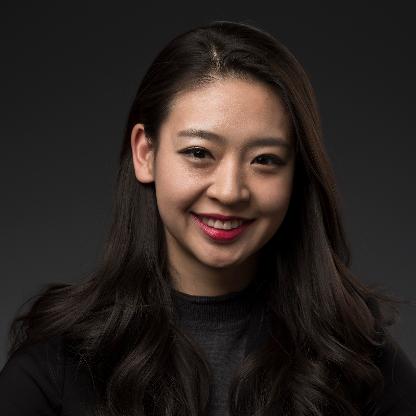Olivia Wang — a philosopher by trade — broke into the tech industry as the 7th employee at Zhenfund, back in 2014.
Wang visited the Sutardja Center Newton Lecture Series on February 5 to talk about Zhenfund, what the startup ecosystem in China looks like and how she got to where she is today.
As a humanities major, her journey to tech was an unconventional one. Wang studied philosophy at Johns Hopkins, and was particularly interested in French and German postmodern thinkers. Though she grew up in Ohio, her father moved back to China when she was young, and so she spent lots of time between the two countries. Now, as the US Head at Zhenfund, Wang travels to China almost every month.
Zhenfund is a seed fund, established in 2011 by co-founders Bob Xu and Victor Wang in collaboration with Sequoia Capital China. While they are based in Beijing, they also work in Silicon Valley. One of the questions that they grappled with is whether or not a Chinese fund can build a trusted relationship in the valley, localize and grow. How were they able to cross borders and tie a global community of early-stage investors?
“With Alibaba’s IPO, the US became interested in China,” Wang recounted. “Silicon Valley has a culture of mentorship, a culture of giving back and a culture of being founder friendly — Bob and Zhenfund worked on this.”
Wang meets with teams and other investors 3 days a week and spends the other 2 days on reflections and internal relationships with the team. It’s important to build trust with other investors and Silicon Valley, which she described as an amazing ecosystem where people respond to that.
When asked about her academic journey and career path, Wang said she “followed where great people were. At Johns Hopkins, she knew there were professors she wanted to work with. She spent time working at Credit Suisse on a team with 7 managing directors — she knew they would be able to mentor and train her. So, she joined teams that would teach her things.
“When I looked for internships, or classes, or choosing my job, I’d ask people what the team dynamic is and observe how people work together,” she said. “Is this a team where people think about collaboration? Really knowing that people will invest in you is very important.”
With her role in venture capital, Wang was able to develop experiences and understanding in fields like never before. Zhenfund moved into the Bitcoin space early in China. Another thing she found particularly interesting is CRISPR, which she was able to work with while investing in CRISPR enabled technologies — even in the Berkeley community with PhD students and biochemists like Jennifer Doudna.
While she’s optimistic about China’s collaboration in Silicon Valley, Wang believes that China still has a long way to go in terms of a lot of cultural development and that there’s work that has to be done in management and tech.
“China has more women in leadership than the US does,” she said. “But, there are still problems with misogyny — the Me Too movement hasn’t affected China.”
Olivia Wang — a philosopher by trade — broke into the tech industry as the 7th employee at Zhenfund, back in 2014.
Wang visited the Sutardja Center Newton Lecture Series on February 5 to talk about Zhenfund, what the startup ecosystem in China looks like and how she got to where she is today.
As a humanities major, her journey to tech was an unconventional one. Wang studied philosophy at Johns Hopkins, and was particularly interested in French and German postmodern thinkers. Though she grew up in Ohio, her father moved back to China when she was young, and so she spent lots of time between the two countries. Now, as the US Head at Zhenfund, Wang travels to China almost every month.
Zhenfund is a seed fund, established in 2011 by co-founders Bob Xu and Victor Wang in collaboration with Sequoia Capital China. While they are based in Beijing, they also work in Silicon Valley. One of the questions that they grappled with is whether or not a Chinese fund can build a trusted relationship in the valley, localize and grow. How were they able to cross borders and tie a global community of early-stage investors?
“With Alibaba’s IPO, the US became interested in China,” Wang recounted. “Silicon Valley has a culture of mentorship, a culture of giving back and a culture of being founder friendly — Bob and Zhenfund worked on this.”
Wang meets with teams and other investors 3 days a week and spends the other 2 days on reflections and internal relationships with the team. It’s important to build trust with other investors and Silicon Valley, which she described as an amazing ecosystem where people respond to that.
When asked about her academic journey and career path, Wang said she “followed where great people were. At Johns Hopkins, she knew there were professors she wanted to work with. She spent time working at Credit Suisse on a team with 7 managing directors — she knew they would be able to mentor and train her. So, she joined teams that would teach her things.
“When I looked for internships, or classes, or choosing my job, I’d ask people what the team dynamic is and observe how people work together,” she said. “Is this a team where people think about collaboration? Really knowing that people will invest in you is very important.”
With her role in venture capital, Wang was able to develop experiences and understanding in fields like never before. Zhenfund moved into the Bitcoin space early in China. Another thing she found particularly interesting is CRISPR, which she was able to work with while investing in CRISPR enabled technologies — even in the Berkeley community with PhD students and biochemists like Jennifer Doudna.
While she’s optimistic about China’s collaboration in Silicon Valley, Wang believes that China still has a long way to go in terms of a lot of cultural development and that there’s work that has to be done in management and tech.
“China has more women in leadership than the US does,” she said. “But, there are still problems with misogyny — the Me Too movement hasn’t affected China.”


